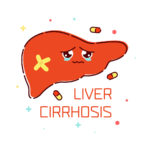By David Blyweiss, M.D.
Joint pain—it’s one of the top complaints I see in my practice. Whether it’s full-blown osteoarthritis, rheumatoid arthritis, fibromyalgia or your garden variety wear and tear, nearly all of my patients over the age of 60 suffer from some type of joint pain.
Here’s some good news: You don’t need to rely on Big Pharma for relief!
Hyaluronic acid can lubricate stiff joints and reduce arthritis pain. Also known as glycosaminoglycan, this lubricating fluid is related to another joint-friendly nutrient, chondroitin. And it’s naturally found in both our joints and our skin.
The problem is, levels of this critical nutrient decline greatly with age. By the time you reach age 50, your body is producing about half the amount of hyaluronic acid it did when you were young. This decline is a major reason your joints are more likely to give you problems as you age. It’s also one reason why your skin begins to wrinkle and sag.
Are you deficient? If you suffer from osteoarthritis, it’s likely. In fact, scientists at the University of California, Irvine found that hyaluronic acid levels in osteoarthritic joints are below normal.1
But here’s even more good news: Hyaluronic acid supplements can help restore lost hyaluronic acid to the body, cushioning joints and easing movement. This was shown in one recent double-blind clinical trial of 20 patients with osteoarthritis of the knee.
Are You Suffering From...
- Love handles and a pot belly
- Romance that isn't what it used to
- Forgetfulness and inattention
- Low (or no) strength and endurance
- A sex drive that's shifted into neutral...or worse
If so...you may have Mature Male Burnout. Click here to discover more about this unique condition and what you can do about it.
Ten of the subjects received 80 mg. of hyaluronic acid daily and 10 were given a placebo. After just 8 weeks, those taking the hyaluronic acid supplements reported less joint pain and better quality of life compared to those in the placebo group.2
Doctors have been injecting hyaluronic acid into the joints of arthritis patients for years. But this study suggests that you can also reap its benefits by taking this nutrient in supplement form.
I use hyaluronic acid in my practice with good results. I recommend taking 150 mg. of a good quality hyaluronic acid supplement daily. For even better results, combine your hyaluronic acid supplement with a supplement that also includes MSM, green lipped muscle extract and natural anti-inflammatories like bromelain, ginger or tumeric.3
Just don’t be impatient! It may take several weeks or even months before you notice a difference. In time, you will likely notice a big improvement in both your pain and your range of motion. You might even find that you can once again enjoy all those things you used to do without pain or stiffness!
References:
- Tehranzadeh J. Cartilage metabolism in osteoarthritis and the influence of viscosupplementation and steroid: a review. Acta Radiol. 2005;46:288-296.
- Kalman DS. Effect of a natural extract of chicken combs with a high content of hyaluronic acid (Hyal-Joint) on pain relief and quality of life in subjects with knee osteoarthritis: a pilot randomized double-blind placebo-controlled trial. Nutrition Journal. 2008;7:3.
- Rosenbaum CC. Antioxidants and anti-inflammatory dietary supplements for osteoarthritis and rheumatoid arthritis. Alternative Therapies in Health and Medicine. 2010; 16: 32-40






